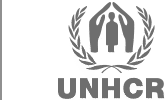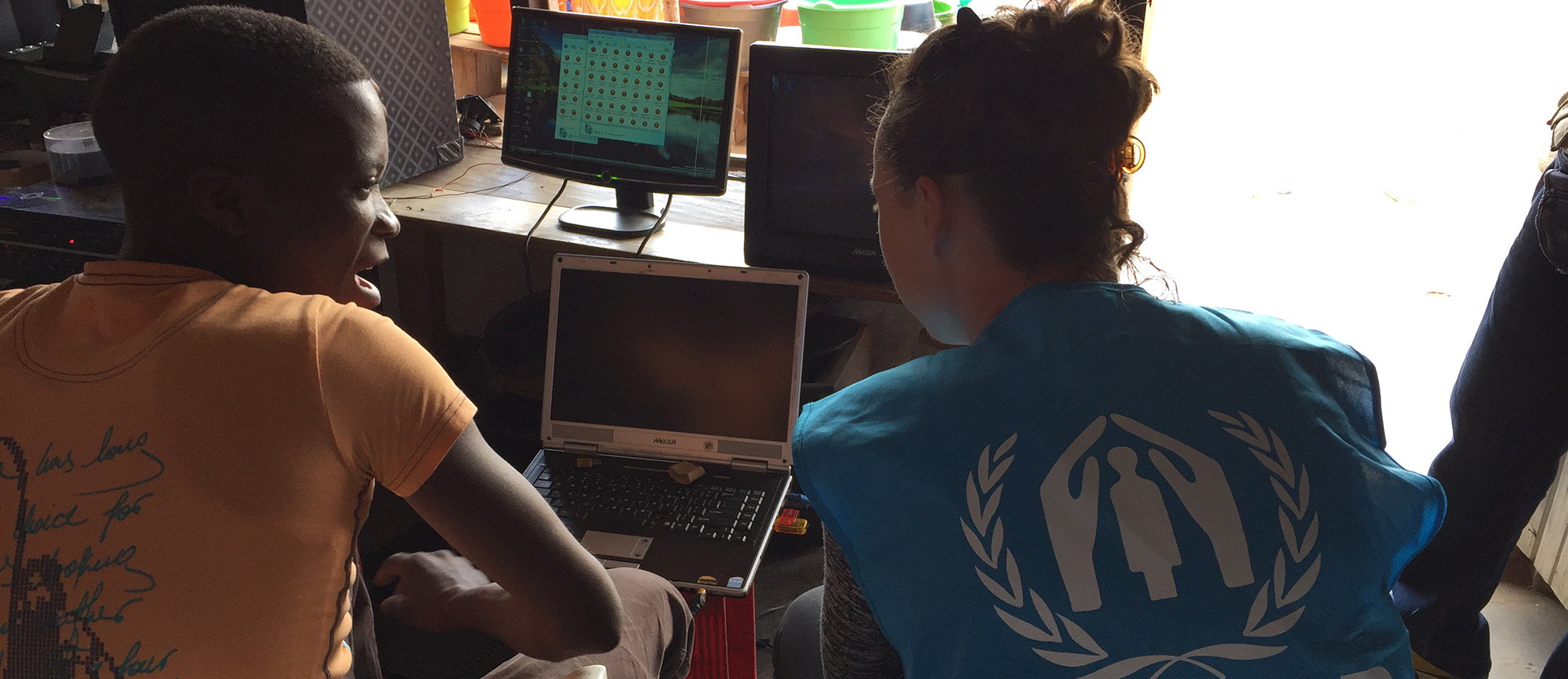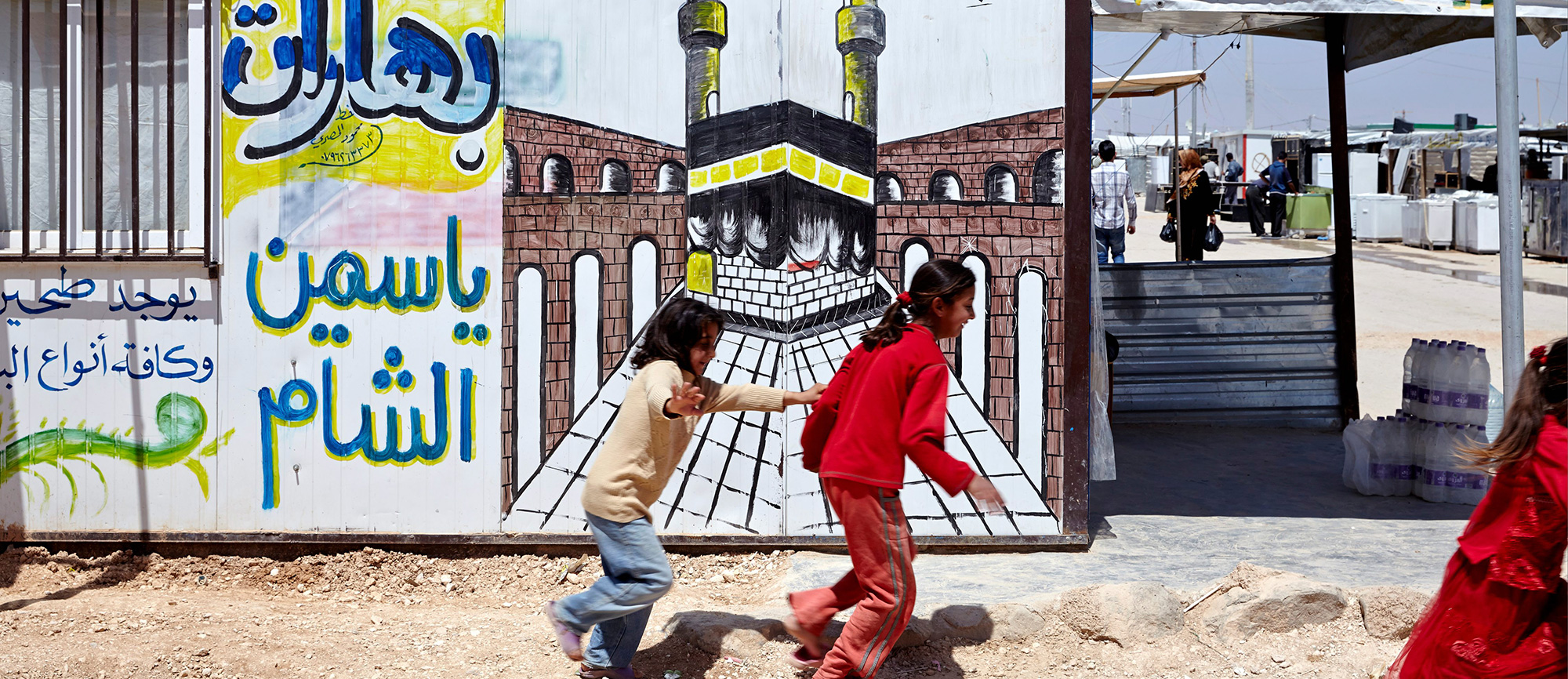1. Define challenges
Enhancing UNHCR’s ability to prevent and respond to sexual and gender-based violence
Prevention of sexual and gender-based violence (SGBV) is part of UNHCR’s core protection mandate. However SGBV is an often under-reported and hidden form of violence, and UNHCR has identified a clear need for better and more efficient solutions to protect refugees during humanitarian crises.
Sexual and gender-based violence often increases during emergencies due to a complex set of inter-related factors, among them lack of access to livelihood opportunities and inadequate living conditions in the camps. That is why UNHCR’s Protection Unit and its SGBV team have sought to adopt a more holistic and community-based approach to address the root causes of violence.
UNHCR’s Energy Lab had already been exploring how access to energy – or lack thereof – can influence crime levels. For instance, insufficient lighting in the camps can lead to higher rates of violence, making women particularly vulnerable to aggressions during nighttime.
In 2014, UNHCR’s Protection Unit, the Energy and Environment Unit and UNHCR Innovation launched a crowd-sourcing project around SGBV. Through the collaborative online platform UNHCR Ideas, they asked UNHCR staff and partner organizations to submit innovative ideas to empower and protect women and girls using clean energy or livelihoods programming. The winning idea would be implemented as part of Safe from the Start, a U.S.-sponsored initiative funding UNHCR programs addressing SGBV.
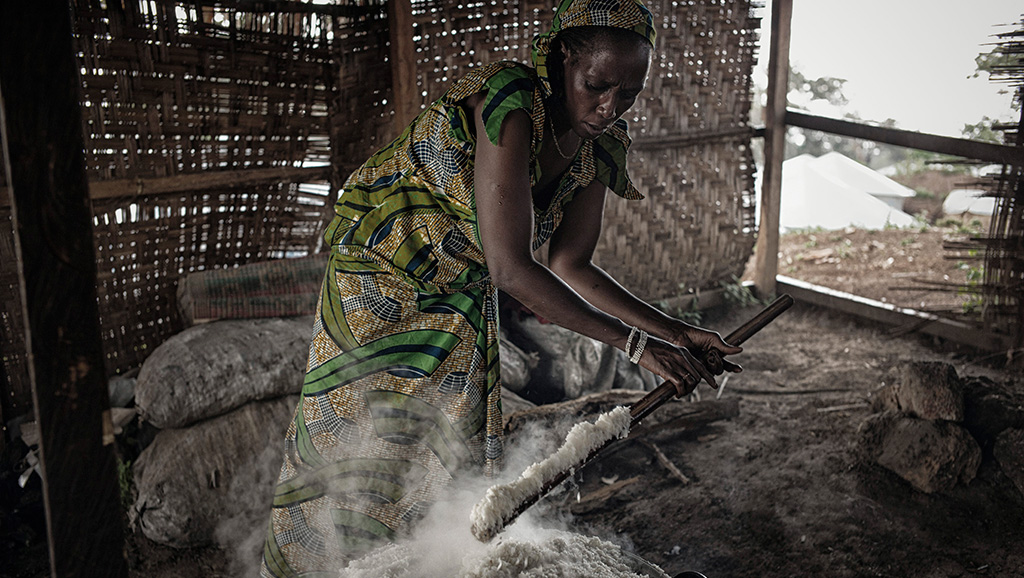
With women typically in charge of cooking, some of them have taken to cutting down trees for firewood in the areas around the camps, leading to clashes with the host community over the depletion of natural resources.
2. Identify solutions
Using clean energy as a catalyst for social change
Nii Ako Sowa, Public Information Associate at UNHCR in Ghana, knew that many women and girls had been the victims of SGBV in the Egyeikrom camp, which hosts refugees from neighboring Ivory Coast. Lack of access to livelihood opportunities and insufficient supplies of cooking charcoal appeared as major factors contributing to violence. With women typically in charge of cooking, some of them have taken to cutting down trees for firewood in the areas surround the camps, leading to clashes with the host community over the depletion of natural resources. Others have turned to survival sex in order to meet their basic needs.
UNHCR had already started looking for alternative and sustainable sources of cooking fuel to supplement charcoal. Among solutions that have been explored is the use of briquettes, a low-emission cooking fuel made from dried biodegradable materials such as banana peelings, groundnuts, cassava flour, saw dust, elephant grass and others. If made correctly, briquettes burn for longer than charcoal and are more efficient, produce less smoke, have a high calorific value and last longer than firewood.
Sowa’s submission to UNHCR Ideas envisioned creating an entire value chain around the production of briquettes in the camps. Various income streams could be generated, from the supply of raw materials to production and retail; this would help fill multiple needs, from safety to clean energy, livelihoods opportunities and increased self-reliance of refugees. With the input of other participants, Sowa’s idea ultimately incorporated the use and retail of clean cookstoves as an additional income stream. His was the first runner-up for the Ideas challenge.
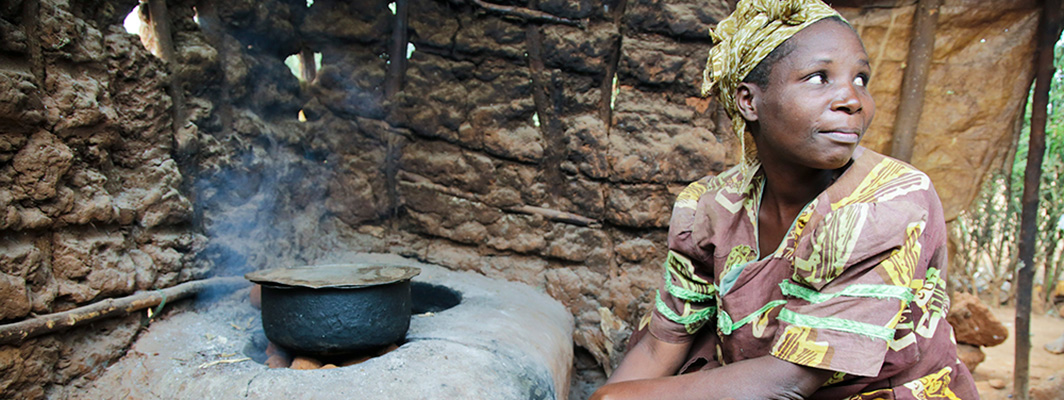
3. Test solutions
Forging partnerships with the private sector to create sustainable value chains
The briquettes program is currently being rolled out in various refugee camps and settlements in Uganda, Ghana, Cameroon and Chad, where it has reached different stages of advancement. A critical aspect of the program has been to use briquette making and cookstove selling as an opportunity to build partnerships with the private sector in order to reduce UNHCR’s involvement. Another one was to involve the host community to allow them to reap some of the benefits of the new initiative.
In Uganda, UNHCR has partnered with a local briquette making company – a process that hasn’t been without challenges. With private sector organizations typically not invited to operate in refugee settlements, the local UNHCR operation has had to work hard at proving its commitment to building a durable relationship with its new partner. In the Kyaka II settlement, for instance, UNHCR facilitated the connection of the briquette manufacture to the electricity grid, and built the infrastructure for retail stores. The government of Uganda also donated land to run the operation.
In Ghana, UNHCR launched a partnership with stove-making company Toyola Energy to provide training for the use and marketing of cookstoves. The training has been completed with success; refugees and member of the host communities have been able to work together in spite of language barriers. UNHCR is now looking forward to launching the retail phase of the cookstove program, and is now looking for a private partner to provide the machinery for briquette production and provide training for refugees and the local population alike.
4. Refine solutions
Supporting revenue-generating activities through financial literacy
As the briquette operation took root in Uganda, it became apparent that training participants on briquette production wasn’t enough; they also needed to improve their financial literacy skills and get a better access to startup capital so that briquettes could become a viable source of income. UNHCR therefore partnered with a microfinance organization called Nsamizi to loan briquettes to women groups, who can then sell them and recoup part of the profits. An NGO has also been contracted to assist participants with stock management, bookkeeping and marketing.

5. Scale solutions
Replicating the briquettes model to fill the basic needs of refugees
The briquettes program has cleared the way for a slew of other initiatives that can successfully engage the private sector while empowering refugees and increasing their self-reliance. In Uganda, the program is now scaling up to include a solar lighting project implemented in partnership with local refugee groups, whereby refugees can pay for solar energy through mobile phone technology. UNHCR is hoping to gradually reduce its involvement in each of these projects once they have reached maturity.
